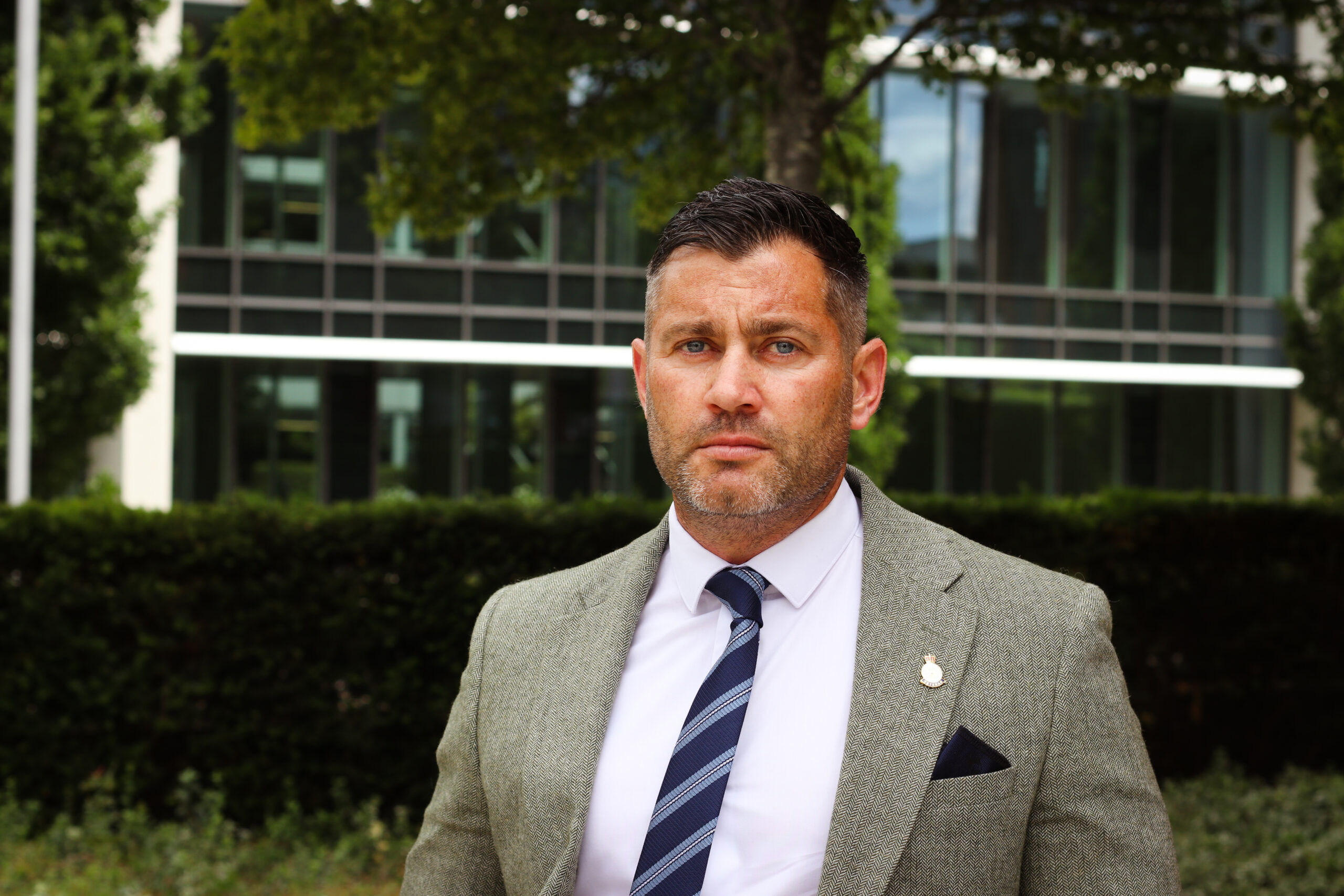
Dale Bennison served in the Grenadier Guards for 24-years, leaving as a Warrant Officer Class 2, earlier this year. Whilst in the Grenadier Guards “I have held crucial leadership positions and undertaken challenging operational tours. As the Senior Operations & Training Lead, I ensured the instant readiness of a battalion for rapid deployment, managing complex resources and fulfilling brigade training requirements. As a Senior Operations Manager, I oversaw multiple project lines and focused on training and development, supporting the growth of up to 200 personnel. Notably, I was entrusted as the Drill Sergeant for the coordination and execution of Operation Forth Bridge, the funeral of Prince Philip, Duke of Edinburgh. As the Chief Instructor for Urban Operations, I influenced senior leadership decisions and facilitated world-class training, collaborating with NATO allies to achieve standardisation across Europe. My service as a Company Sergeant Major exemplified my leadership impact within the Army. Additionally, I undertook operational tours in various regions, commanding large groupings and demonstrating adaptability and resilience. My dedication to training and operations, coupled with my experience in coordinating high-profile events and collaborating with NATO, has been vital in enhancing the overall readiness and effectiveness of the British Army.”
With regards to the key skills from Dale’s time serving “Over my 24-year service in the British Army, I have developed a wide range of skills that have been crucial to my success in various leadership, operational, and training roles. Throughout my career, I had the privilege of serving as the Urban Operations Lead for the Army, where I utilised my expertise to collaborate with the Field Army and NATO allies. Together, we designed and implemented standardised room combat procedures to ensure full cohesion and interoperability among our forces. One of my significant contributions was the development of a regional skills house, which has proven invaluable in enabling low-level drills and skills to be conducted without overwhelming the three main oversubscribed facilities. This innovative approach has improved training efficiency and resource utilisation, providing a more effective and realistic training environment for our personnel. These achievements have not only enhanced the capabilities of our forces but have also positively impacted the overall readiness and effectiveness of the British Army. I take immense pride in the lasting impact of my contributions, as standardised room combat, and the regional skills house continue to be utilised and benefit the Army’s training efforts today.”
Dale’s current role is Project Manager Consultant, with CS PM Consultancy, “we are a veteran run Programme and Project Management Consultancy specialising in the built environment, particularly within the defence, local government, and nuclear industries. In the early stages, I served as the Business Development Manager, playing a crucial role in driving the growth and development of our Programme & Project Management Consultancy. Now, I have transitioned to assume the role of Project Manager, where I continue to support and actively contribute to the ongoing growth and success of the company.”
Dale secured his role “via former Grenadier Guard, Carl Shadrake the Director of CS PM Consultancy. Carl wanted assistance in developing the company to set the conditions and pave the way for other veterans. Carl employed me on my end of service date.”
Dale’s advice to anyone leaving the armed forces and seeking a career in construction: “I highly recommend focusing on conducting relevant courses and negotiating time in your final year to ensure a smooth transition, rather than just resettlement. Participating in work placements and relevant training will provide valuable insights into civilian work routines, work ethic, and industry-specific terminology, especially in the construction sector. This proactive approach will equip you with the knowledge and confidence needed to navigate the civilian job market successfully and pave the way for a successful transition into a fulfilling career in construction.”
“My greatest challenge during my transition, was limited time for additional work placements, and critical courses, also the need to shift my loyalty from the military environment to prioritise the transition to civilian life. It required a dedicated focus on making the transition my priority and adapting to the demands of civilian employment.”
Military skills Dale uses in his day job “in both roles, BDM, and Project Manager the transferable skills gained from my time in the Army prove invaluable. Leadership experience allows me to inspire and lead teams effectively. Strategic planning helps guide the consultancy’s growth. Adaptability enables me to thrive in a dynamic business landscape, and problem-solving skills help address challenges. Clear communication, time management, and decision-making are essential in coordinating projects successfully. Resilience allows me to handle setbacks, while teamwork fosters cohesion. Overall, my military background enhances my effectiveness in driving the consultancy’s success.”
Dale advised the three words to describe a career in construction as “challenging, rewarding and dynamic. And to describe veterans to civvy employers would be disciplined, adaptable and skilled.”